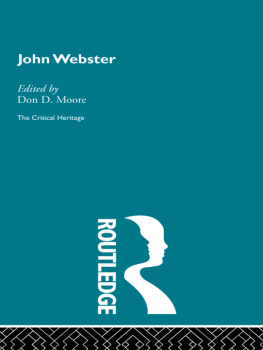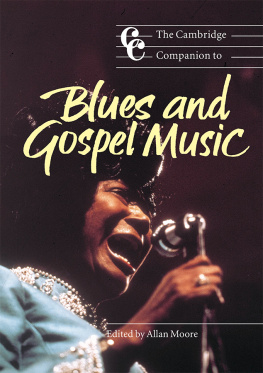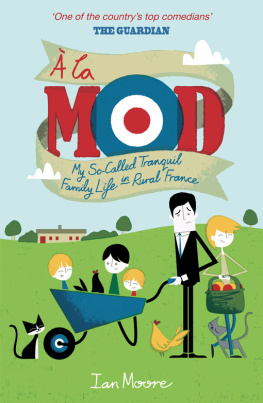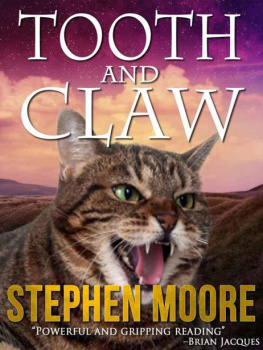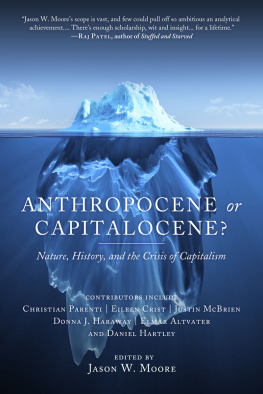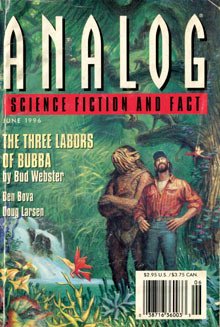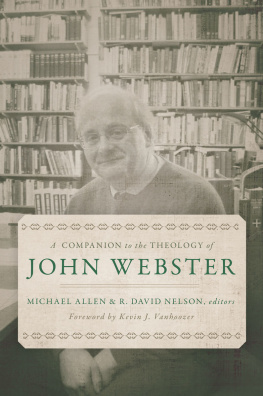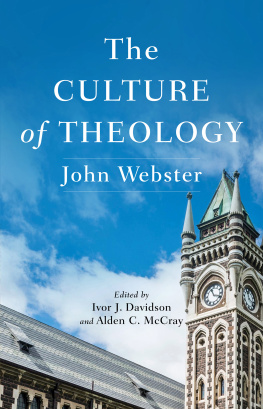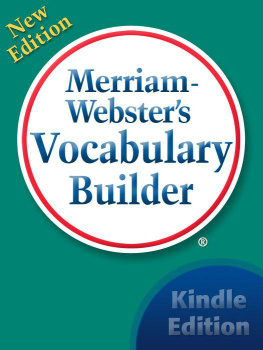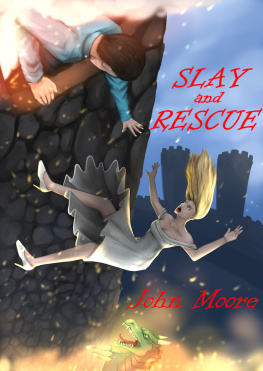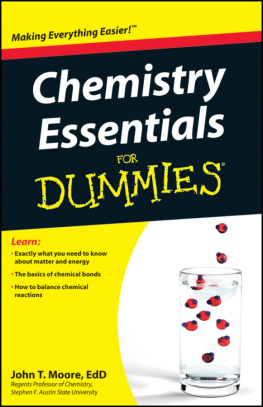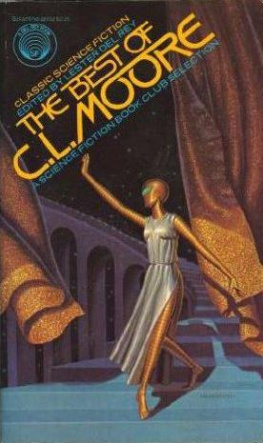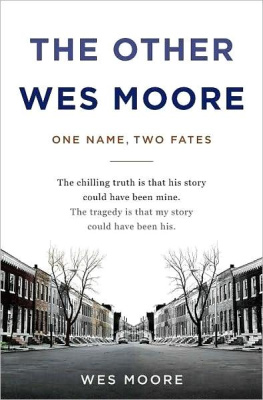Moore - John Webster
Here you can read online Moore - John Webster full text of the book (entire story) in english for free. Download pdf and epub, get meaning, cover and reviews about this ebook. year: 1995, publisher: Routledge, genre: Non-fiction. Description of the work, (preface) as well as reviews are available. Best literature library LitArk.com created for fans of good reading and offers a wide selection of genres:
Romance novel
Science fiction
Adventure
Detective
Science
History
Home and family
Prose
Art
Politics
Computer
Non-fiction
Religion
Business
Children
Humor
Choose a favorite category and find really read worthwhile books. Enjoy immersion in the world of imagination, feel the emotions of the characters or learn something new for yourself, make an fascinating discovery.
- Book:John Webster
- Author:
- Publisher:Routledge
- Genre:
- Year:1995
- Rating:3 / 5
- Favourites:Add to favourites
- Your mark:
- 60
- 1
- 2
- 3
- 4
- 5
John Webster: summary, description and annotation
We offer to read an annotation, description, summary or preface (depends on what the author of the book "John Webster" wrote himself). If you haven't found the necessary information about the book — write in the comments, we will try to find it.
John Webster — read online for free the complete book (whole text) full work
Below is the text of the book, divided by pages. System saving the place of the last page read, allows you to conveniently read the book "John Webster" online for free, without having to search again every time where you left off. Put a bookmark, and you can go to the page where you finished reading at any time.
Font size:
Interval:
Bookmark:

In his address to the reader in the 1612 quarto of The White Devil, John Webster, responding to charges of his slowness as a writer, seems confident of his own critical heritage:
To those who report I was a long time in finishing this tragedy, I confess I do not write with a goose-quill, winged with two feathers, and if they will needs make it my fault, I must answer them with that of Euripides to Alcestides, a tragic writer: Alcestides objecting that Euripides had only in three days composed three verses, whereas himself had written three hundred: Thou tellst truth, (quoth he) but heres the difference, thine shall only be read for three days, whereas mine shall continue three ages.()
Indeed, as in his Preface to The Devils Law Case, Webster never seemed to doubt that his works would be found worthy. And if The White Devil failed at the Red Bull Theatre, it was due to the absence of a full and understanding auditory,() not to the absence of the writers art.
More than three ages have now passed, and Websters self-evaluation has proven, in many ways, accurate. His major tragedies, The White Devil and The Duchess of Malfi, are the focus of attention in the study, the school, and, increasingly, on the stage. Dissertations are written; symposia are held; editions are plentiful. At the same time, however, Websters prophetic comments are not wholly accurate. For almost two ages Webster was available, having not fully disappeared with his fellows; but few seemed to care, And with his revival in the early nineteenth century, heralded by Lambs appreciation, Webster began to generate one of the most )
As has often been noted, what we know about Shakespeare seems voluminous when compared with what we know of Webster in his own time. Until recently, the primary biographical facts were these: in 1602, Henslowe made five payments to John Webster and several other playwrights; we have dates for Websters collaborative efforts; we know that The White Devil failed at the Red Bull Theatre in 1612 but that The Duchess of Malfi was produced at the Globe in 1614, representing a gain in prestige for the dramatist; by 1615 Webster was a freeman of the Merchant Taylors Company; we have later dates of plays written alone and with his fellows. However, Mary Edmond has recently discovered some valuable additions to these meagre facts, concerning Websters family:()
) Such a house might well have been confused by a drama of old conventions but troublingly new ideas, with characters who did not fit the older stereotypes. Webster did not lack confidence, however, and perhaps never did, as evidenced by his dedications to The Duchess of Malfi (No. 2) and The Devils Law Case (No. 3). We have in the Preface to The White Devil his well-known references to his colleagues; we note that he begins the list with the two serious and classical writers, Chapman and Jonson, and ends with the master writers of the popular theatre, Shakespeare, Dekker, and Heywood. There is little doubt that Webster would prefer to be read by the light of the first two learned playwrights, and with Jonsons defensive Preface to Sejanus before him, no doubt saw himself as above the popular theatre. Still, his good opinion of other mens labors is not particularly effusive, and Webster here, as in the other dedicatory epistles, seems at this time an independent, confident man. That near the end of his career he would return in a collaborative role to the Red Bull was an unanticipated and probably an unpleasant irony: Keep the Widow Waking, written with Ford, Dekker, and Rowley, was performed there in 1624.
The commendatory verses for the 1623 edition of The Duchess of Malfi (No. 4) are from three playwrights not praised in The White Devil preface, and we may wonder at Websters reputation in 1623 because of the absence of certain of those mentioned. Instead, we have Middleton, Ford, and Rowley, all collaborators with Webster but of different levels of learning and interests. Yet though Rowleys verse befits his usual hack level, Middletons and Fords do indicate a genuine awareness of the merit of the play; and we may note also that Middleton and Rowley wrote no other prefatory verse. The famous description by Henry Fitzjeffrey (No. 5) remains our only personal glimpse of Webster, and the unflattering portrait therein is the first of many intermittent but vivid assaults on Webster and his art which continue well into the twentieth century. Objecting to The Duchess for religious reasons is Orazio Busino, Venetian envoy in England in 1618 (No. 6). That the play was thus available in 1618 indicates, along with the cast-lists, its theatrical success, as does the printing of The Duchess in 1623 when presumably it was off the stage. Nevertheless, after rising briefly to great heights, Websters power in the field of tragedy declined: The Devils Law Case is a less than challenging play of episodic structure belonging to 161620; there were dull collaborations; Appius and Virginia, in the 1620s (?), does manifest a unity of tone, but that tone is unexciting and simplistic. In his end was his beginning.
For a period of time afterwards we find Webster in the commonplace books (Edmund Pudsey had earlier garbled eight quotations from The White Devil, c. 1616) and as a ghostly influence on such writers as James Shirley, Nathaniel Richards, and Robert Baron. In 1648, an unlicensed royalist newsbook, Mercurius Pragmaticus, referred to famous Webster in a roll-call of poets including Seneca, Sophocles, Shakespeare, and Jonson()
The early 1660s found Webster on the stage once more: The White Devil was performed twice in October of 1661 and again the following December; there would be another recorded performance in late summer of 1671. The quarto of 1671 tells us that it had been divers times Acted by the Queenes Maiestes seruants in Drury Lane; the third ) Again, Rowley was in good company.
Thus Webster was kept tenuously alive through sporadic performances and new editions of his plays. Appius and Virginia was reprinted in 1654 (reissued in 1659) and again in 1679, due to Bettertons adaptation called The Roman Virgin. (The actors revision never saw print, which may tell us something of its merit.) Websters appearance in play lists such as Edward Archers (1656) and Kirkmans (1661 and 1671) indicates that the reading of old plays did not stop for a Civil War and a Restoration.() Edward Phillips made Webster the subject of a brief but error-filled account in his effort at theatre history in Theatrum Poetarum (1675); William Winstanley did little better in his Lives of the Most Famous English Poets (1687), usually copying indiscriminately from Phillips. It remained for Gerard Langbaine to bring together the play lists and the attempt at biographies in his Account of the English Dramatic Poets in 1691 (No. 10), a revision of his New Catalogue of English Plays of 1688. His account is given here chiefly for the historical record; but for a century it was the standard source for Webster documentation. In 1698 Charles Gildon republished the material in his Lives of the Poets, adding almost as an afterthought that Webster was at one time clerk of St Andrews parish, thus confusing the dramatists biography for over a century. Dyce in his 1830 edition firmly challenged the accuracy of the remark, C.W. Dilke having been dubious in his Old English Plays (181415) which included Appius and Virginia.
James Wright in Country Conversations (1694) helps bring the sparse Webster references to a placid and perhaps symbolic close at the end of the century. A country ) The passage, soon to be the Webster favourite in eighteenth-century anthologies, is ascribed to Webster, the play, and the speaker, and is the only quotation in the book apart from translated passages. Wright, son of Abraham Wright (No. 7), produced in 1699 the Historica Histronica, in which he briefly refers to The Duchess as the first of a group of plays that had the names of the actors set against their parts.
Font size:
Interval:
Bookmark:
Similar books «John Webster»
Look at similar books to John Webster. We have selected literature similar in name and meaning in the hope of providing readers with more options to find new, interesting, not yet read works.
Discussion, reviews of the book John Webster and just readers' own opinions. Leave your comments, write what you think about the work, its meaning or the main characters. Specify what exactly you liked and what you didn't like, and why you think so.

